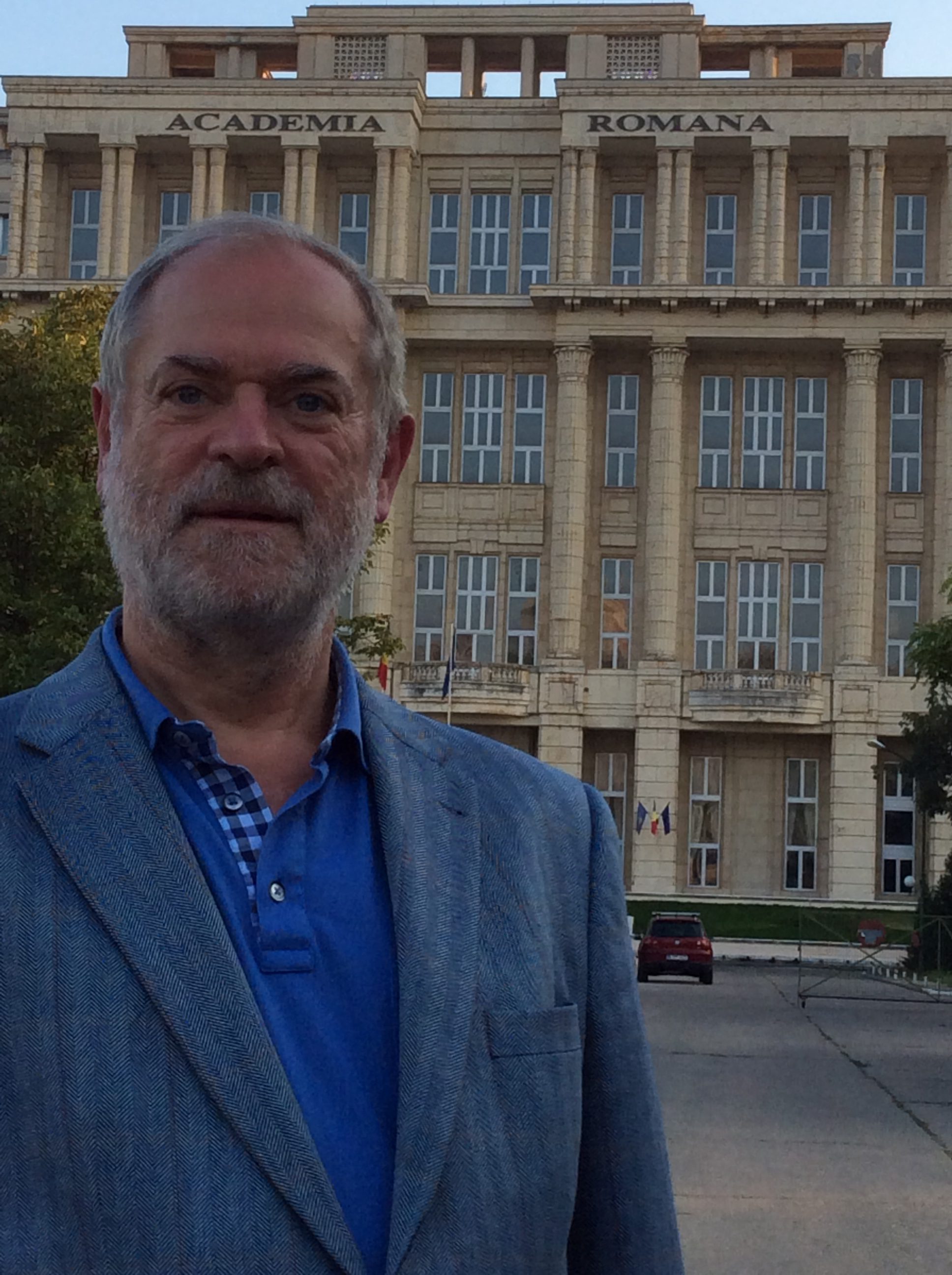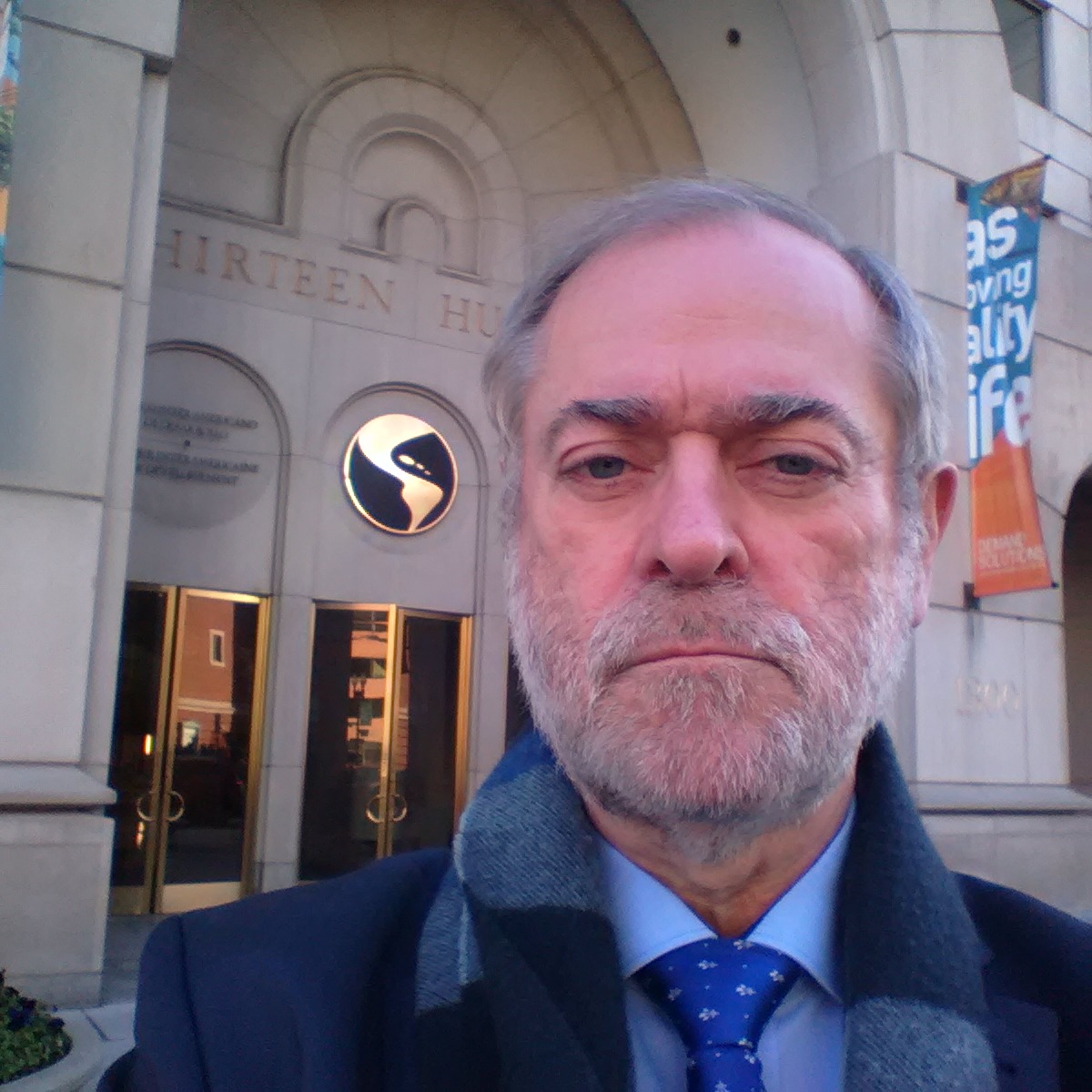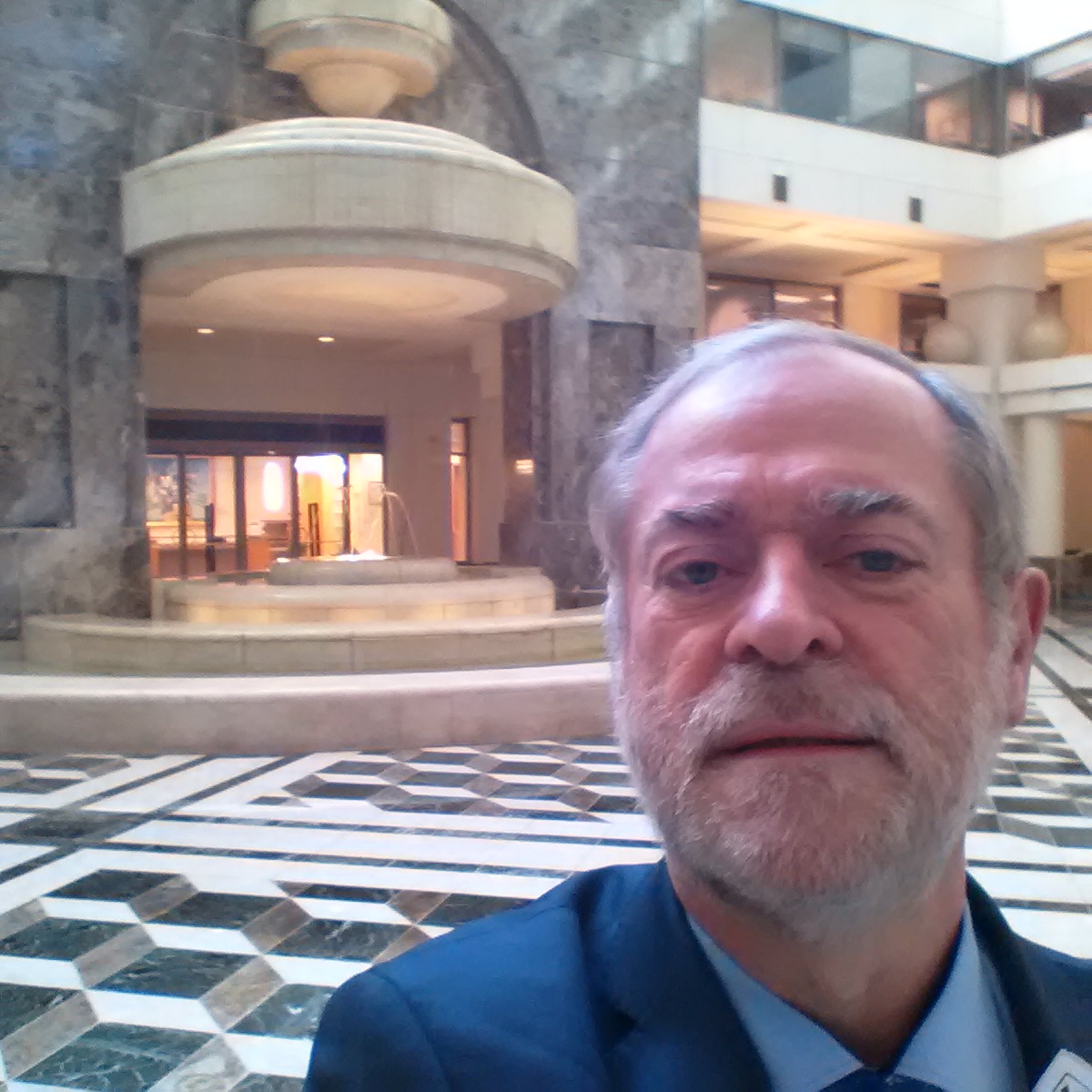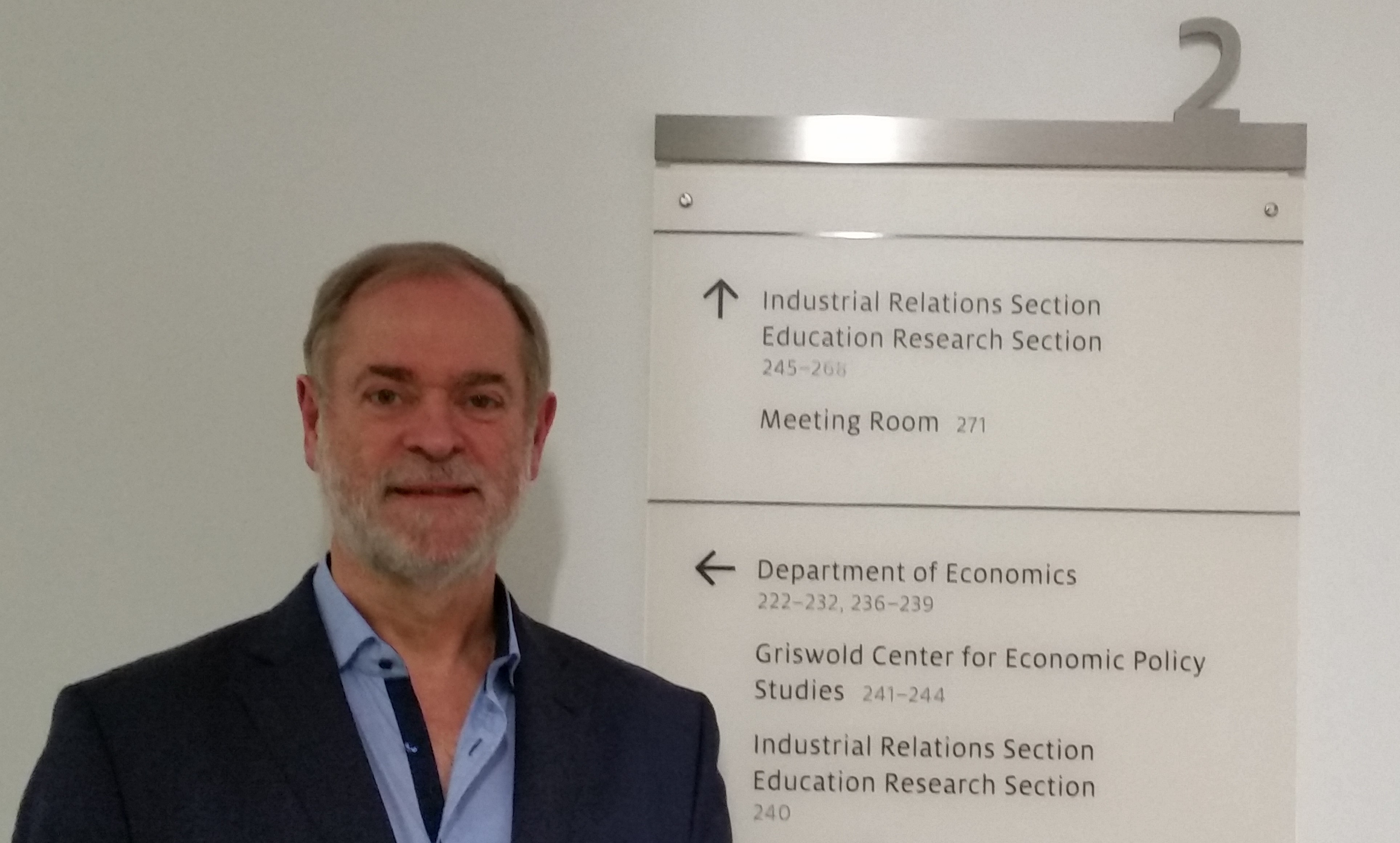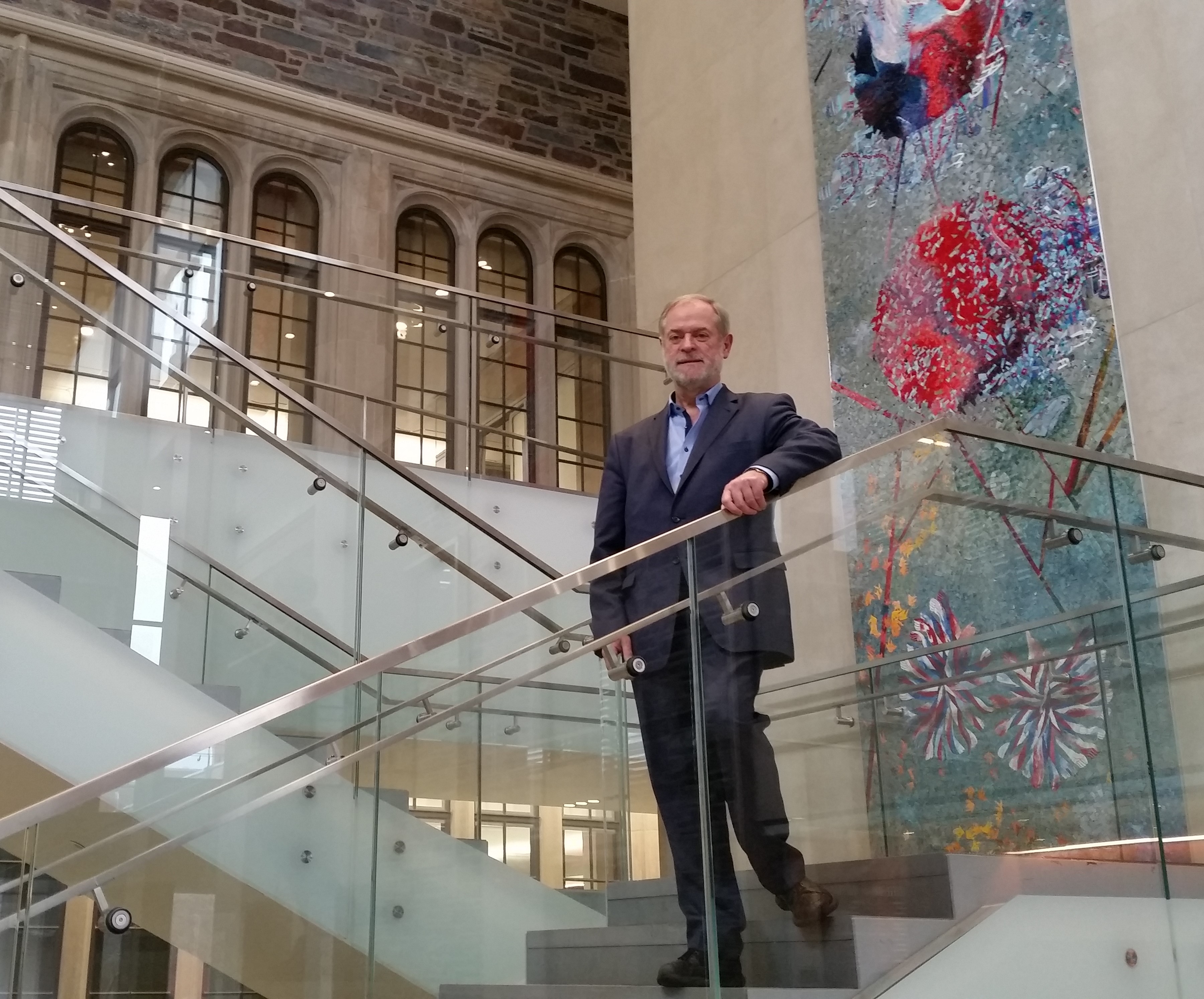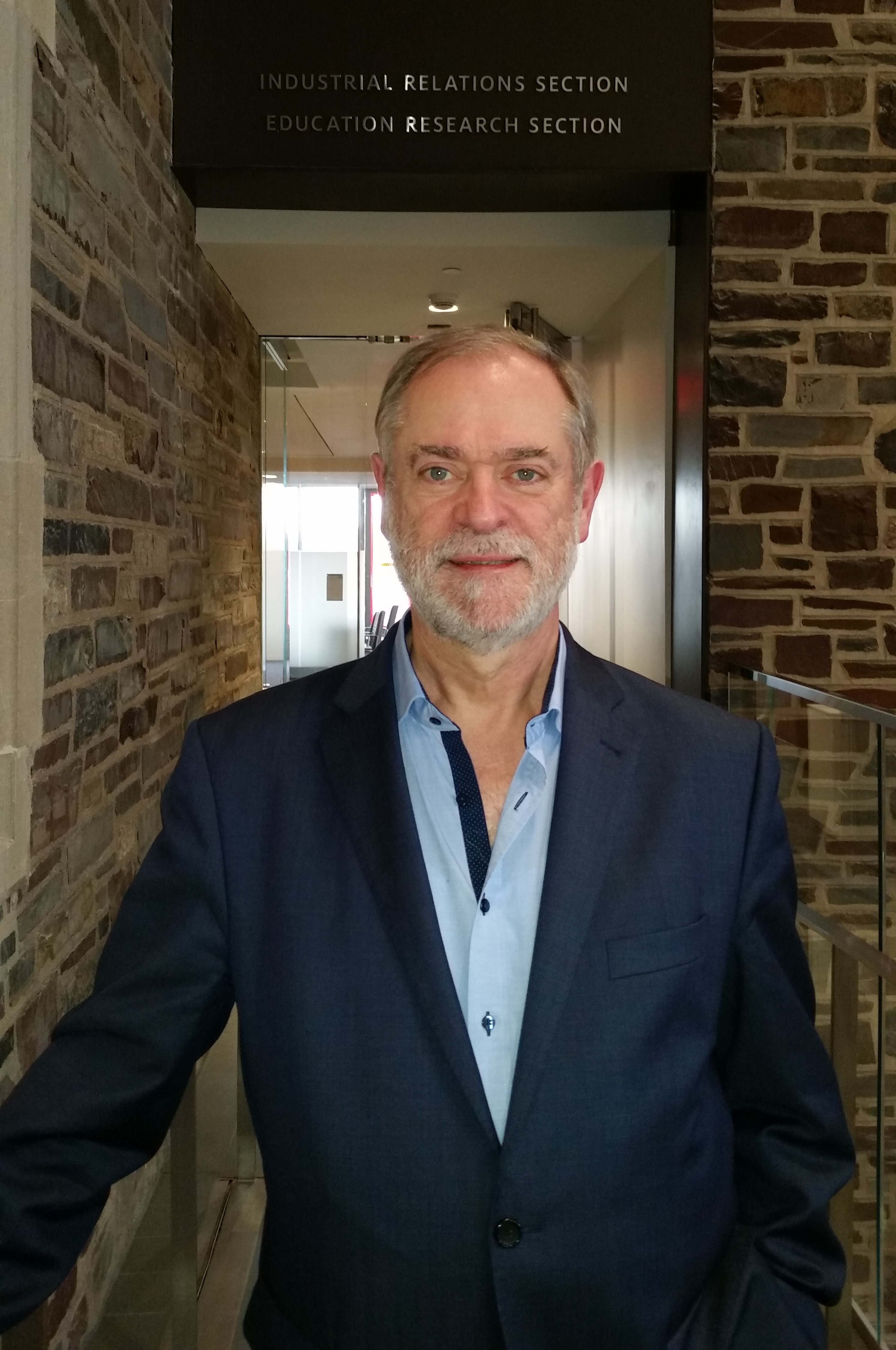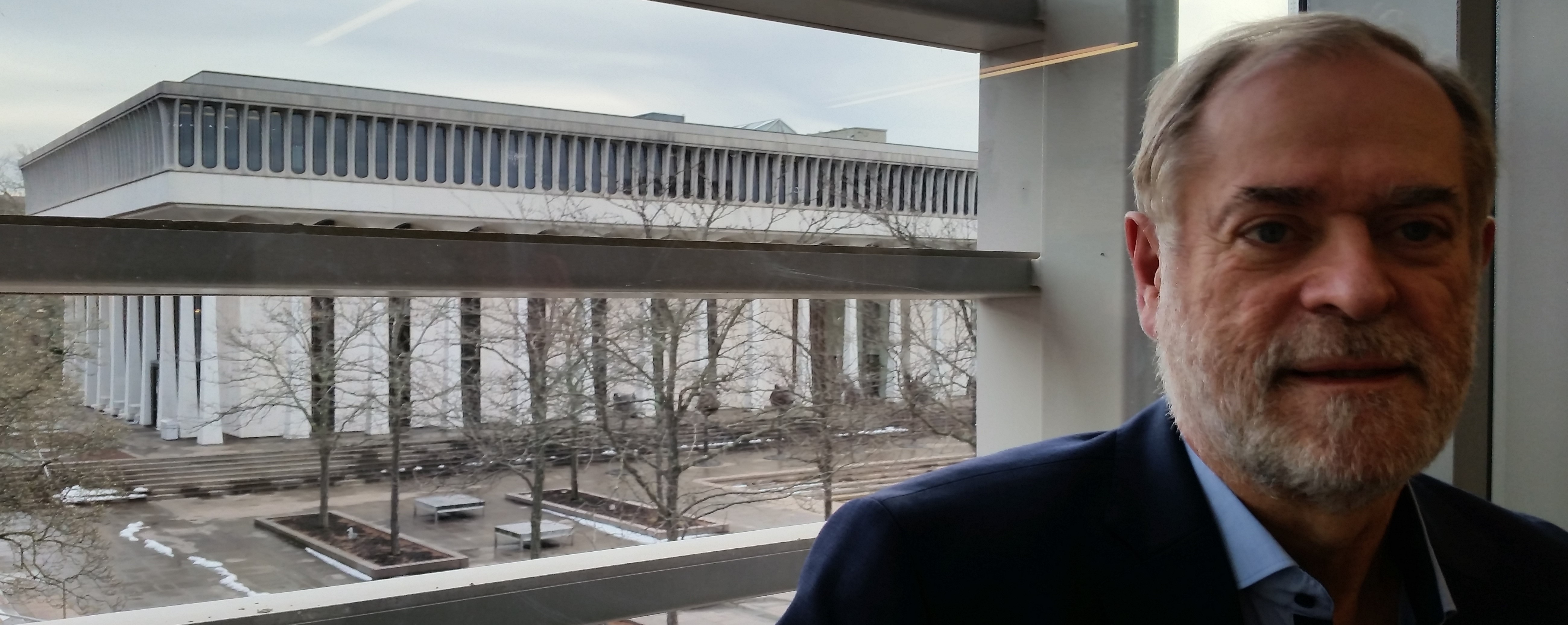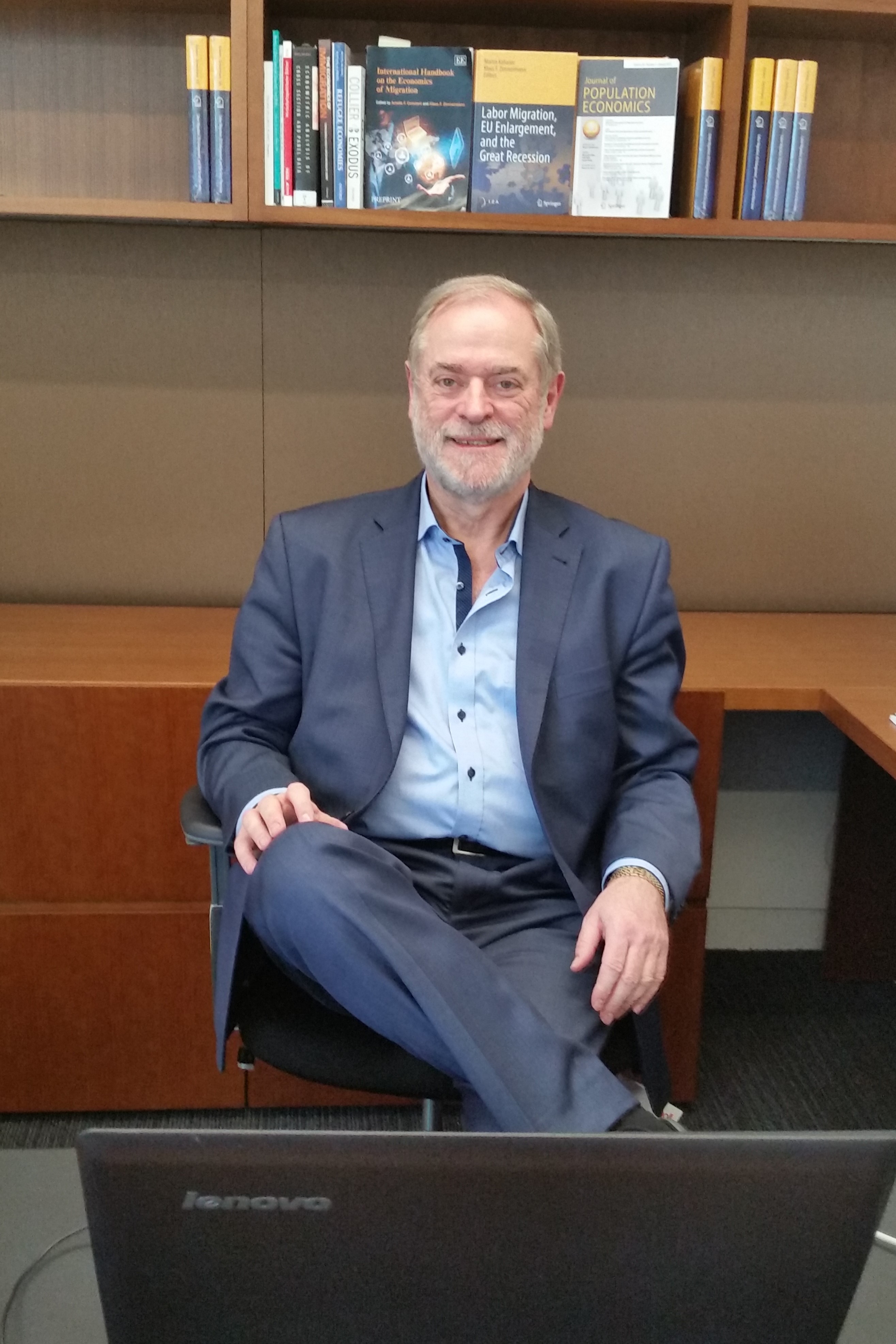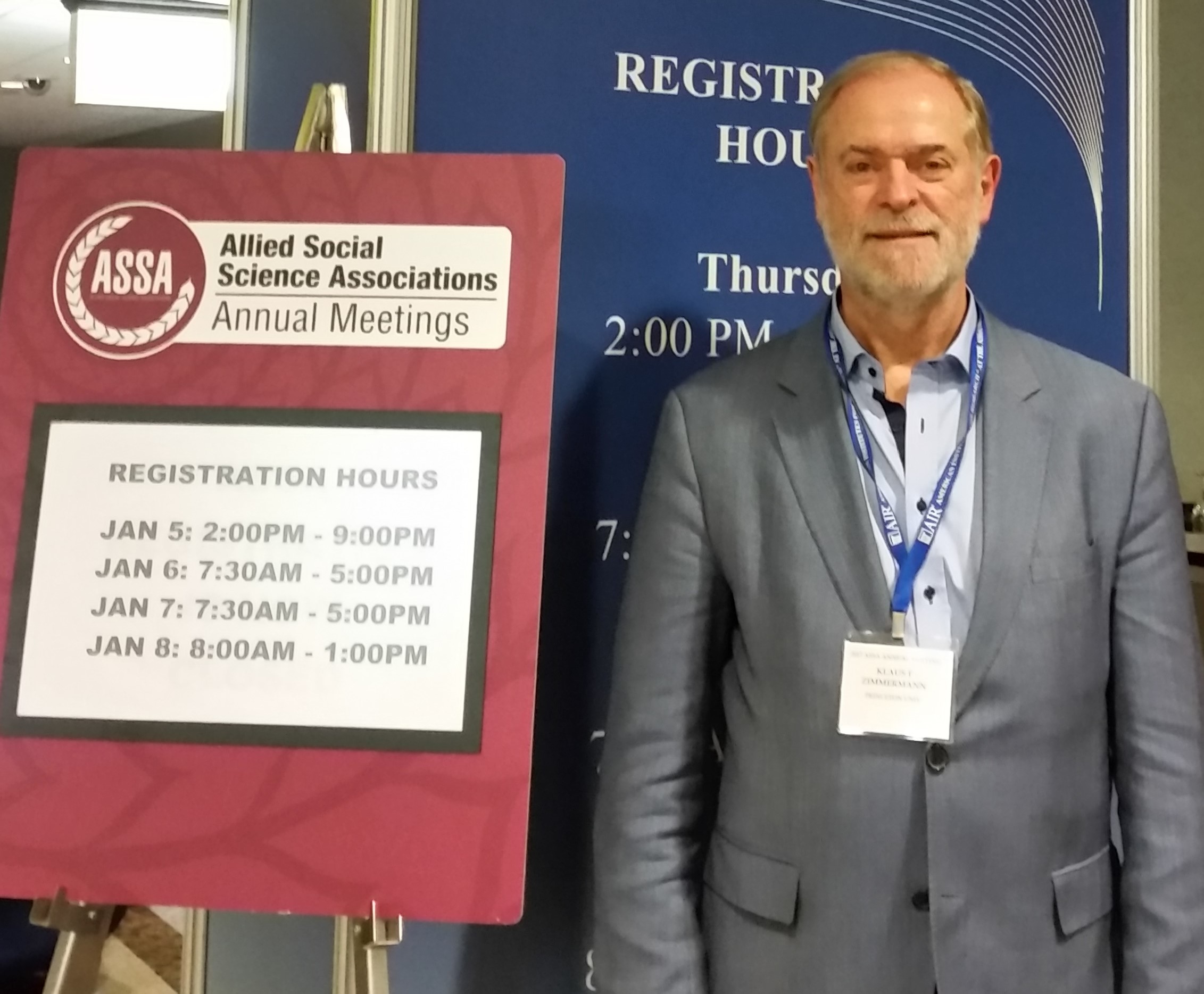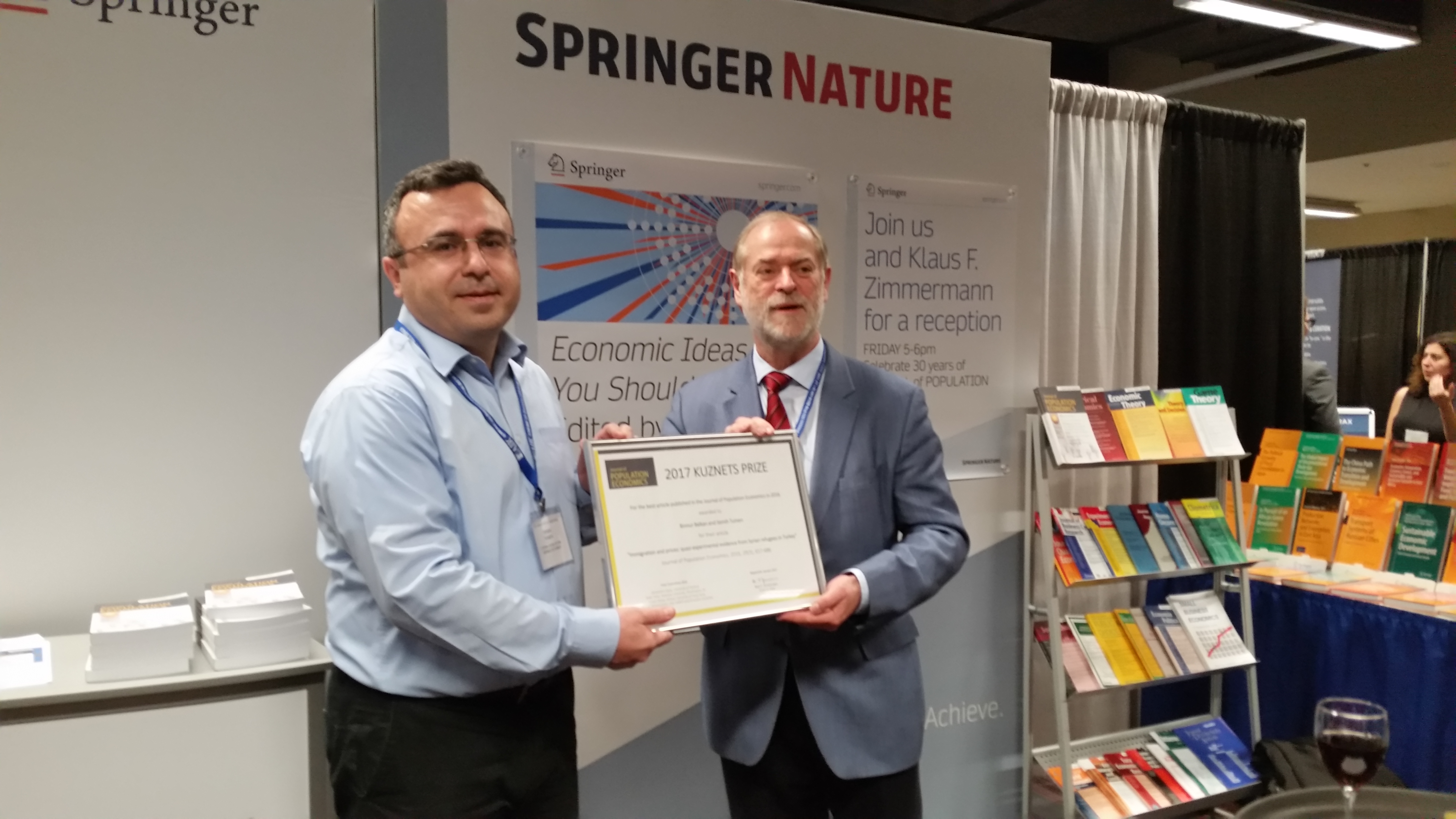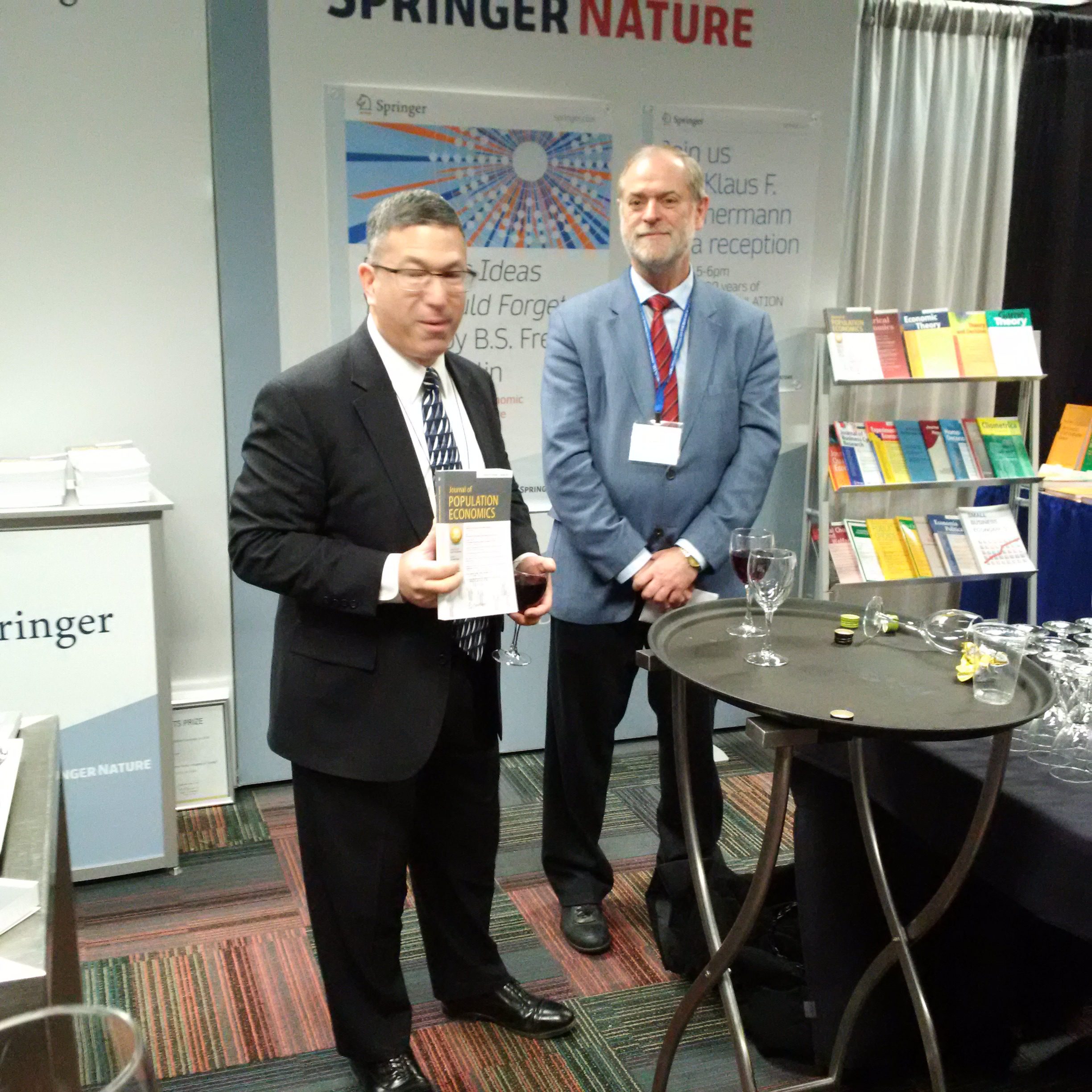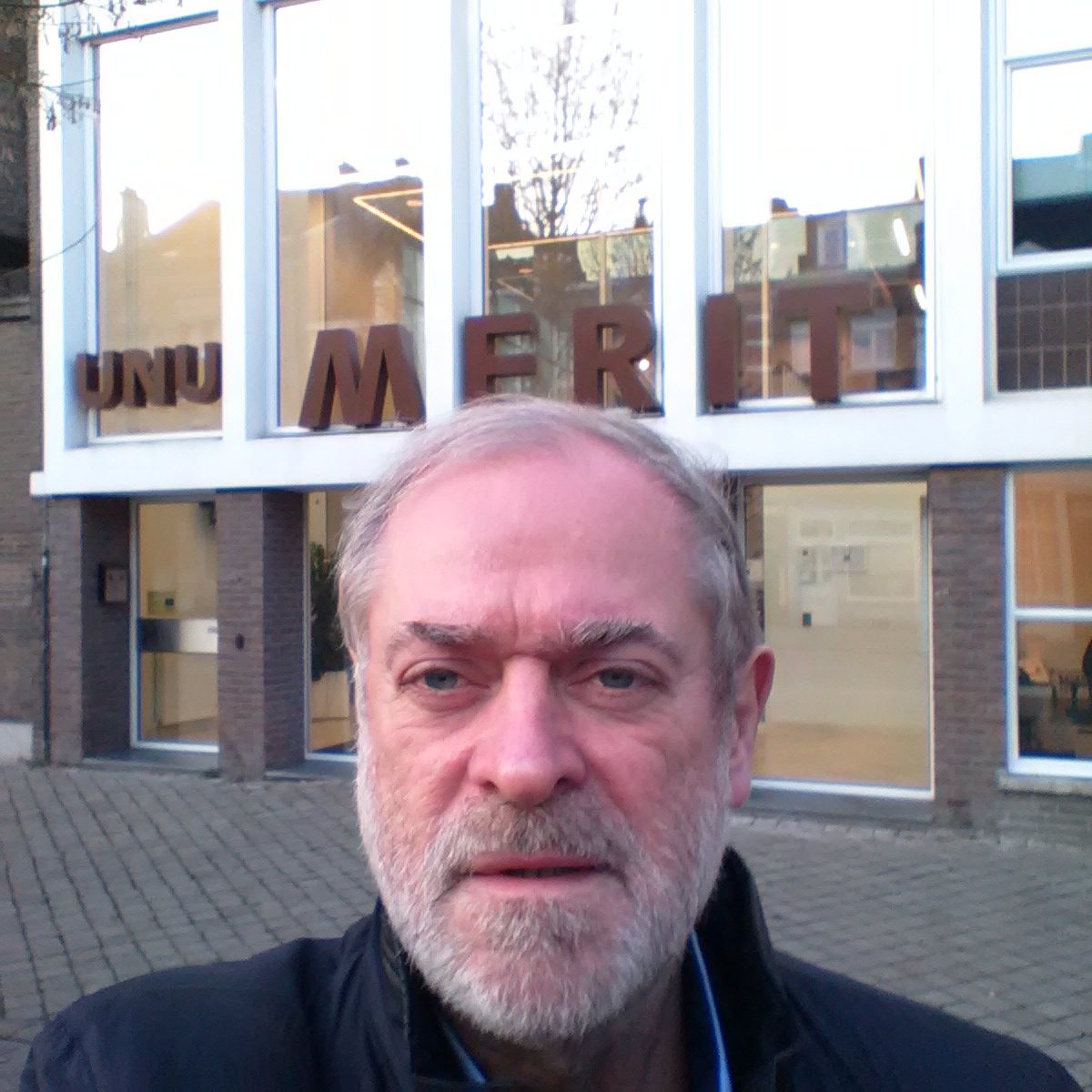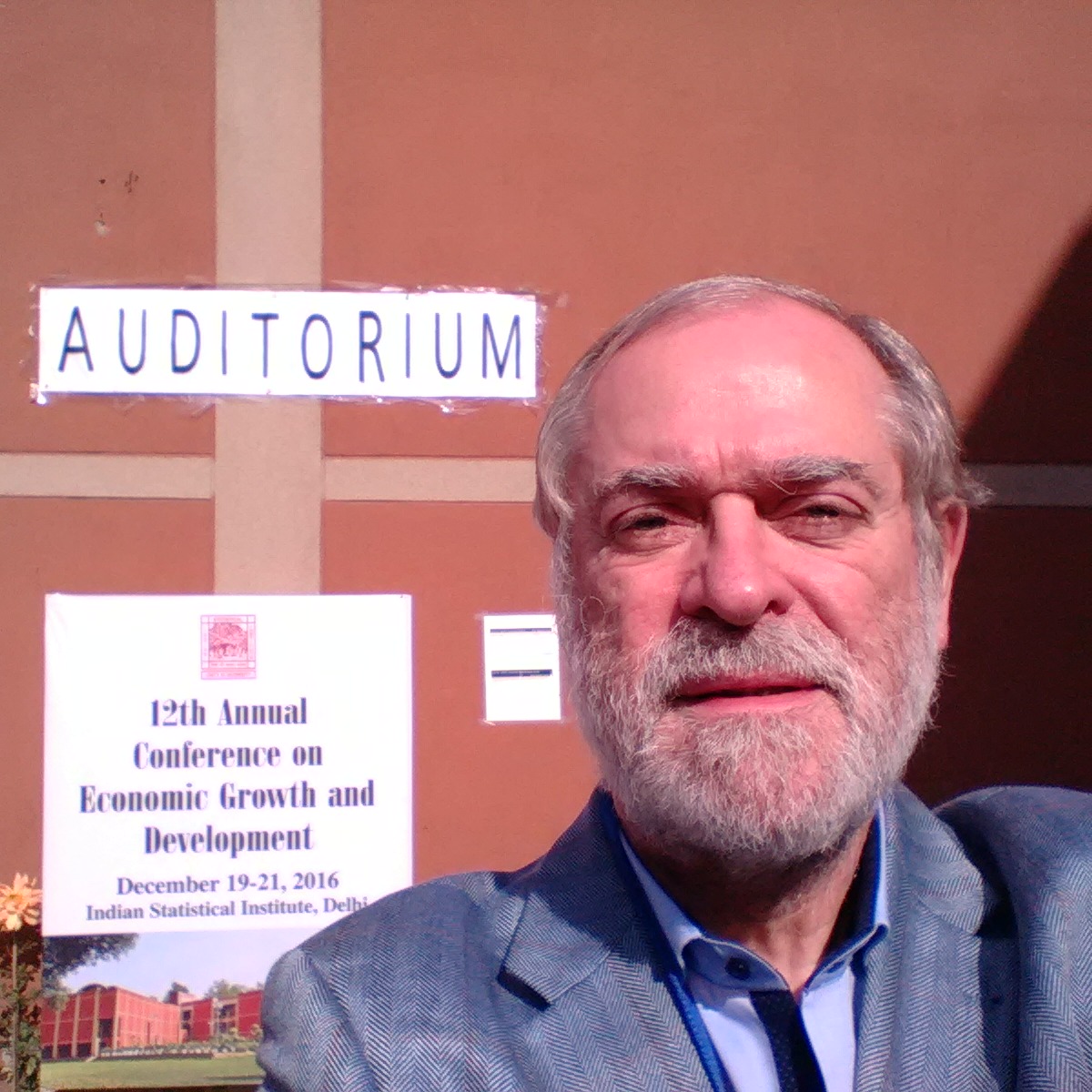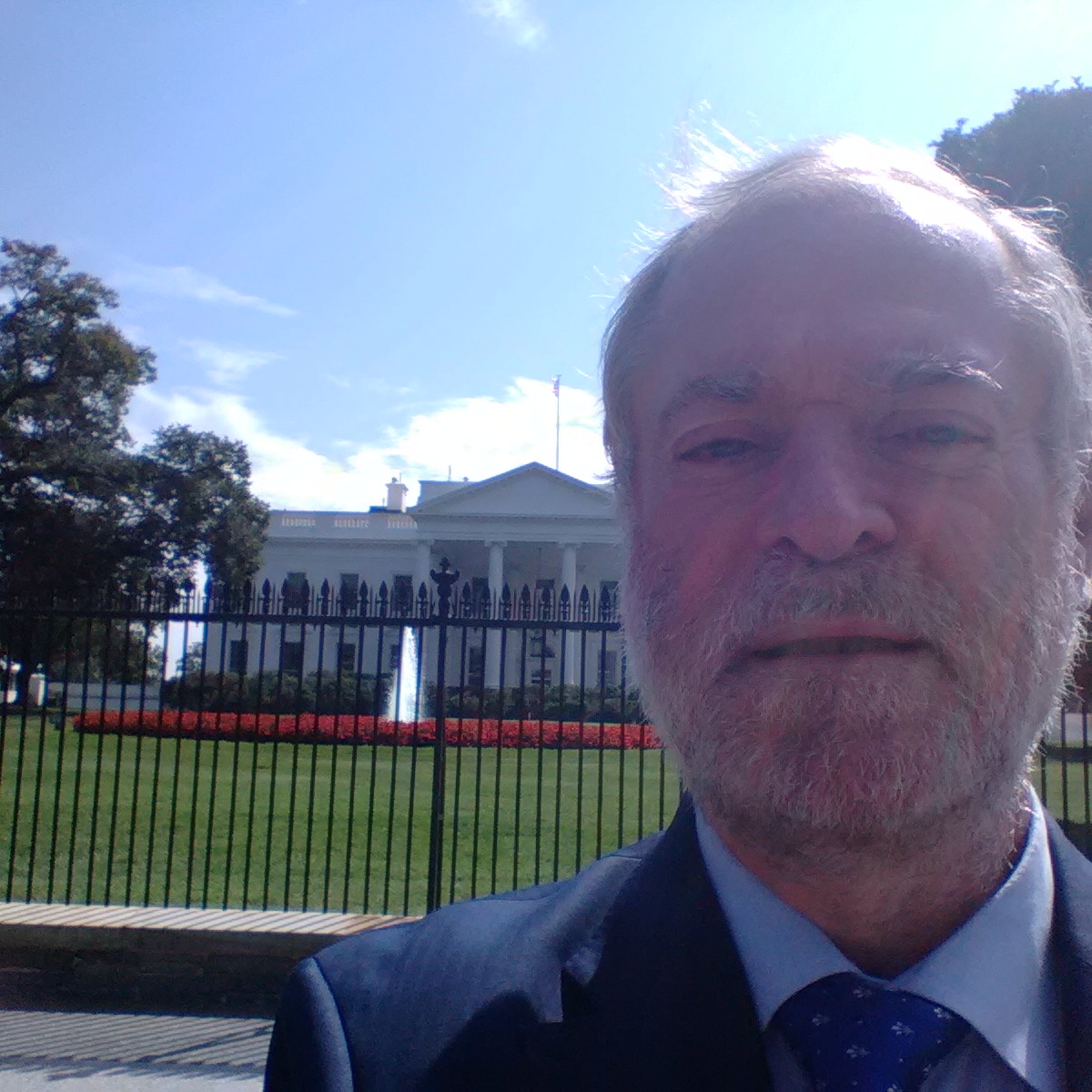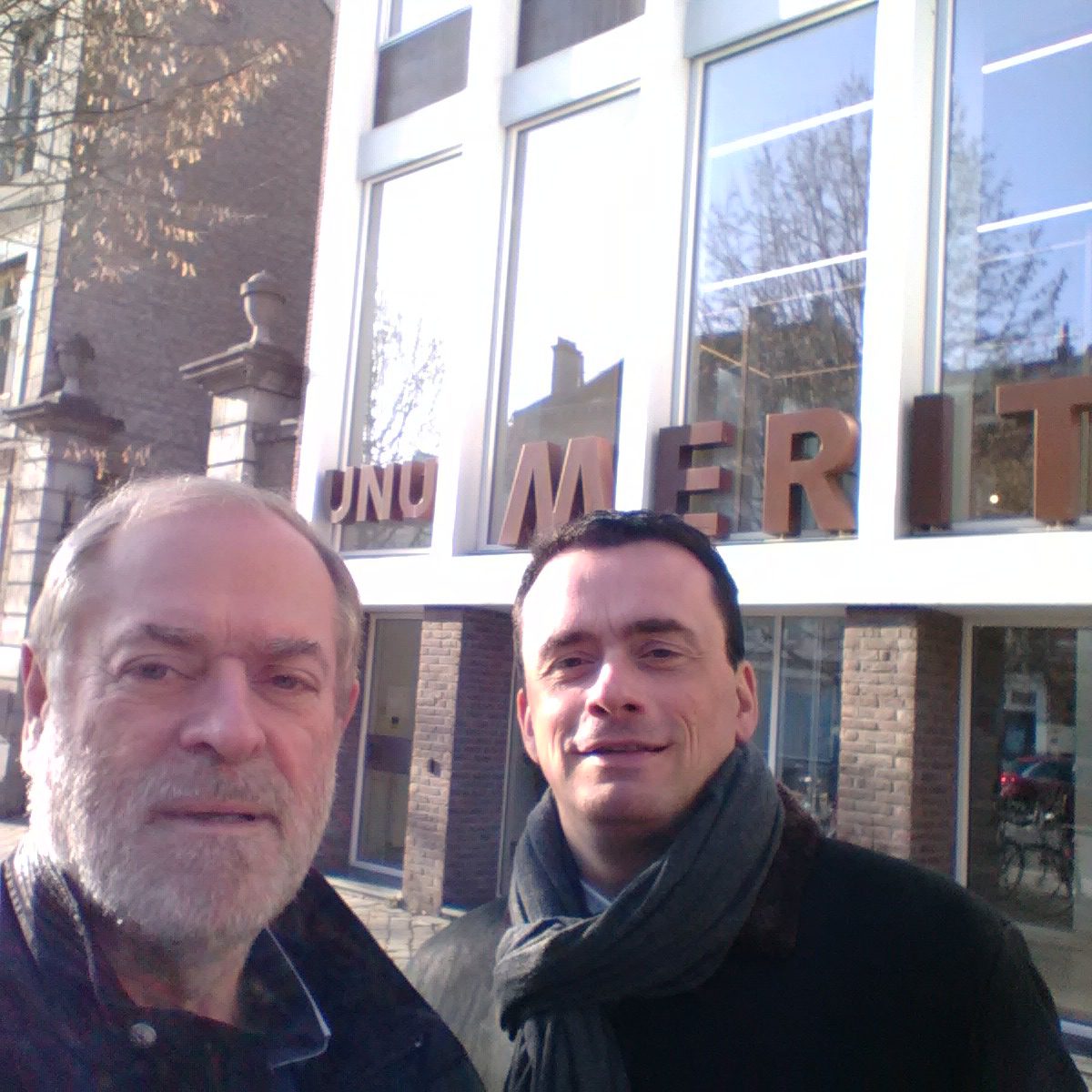January 5, 2017 at the Hyatt Regency Chicago: At a reception organized by Springer Nature, a major scientific publisher, a large crowd of scientists and members of the publication and think tank communities were celebrating the 30th birthday of the Journal of Population Economics. The Journal is now at the forefront of research publication in economic demography. The event took place as part of the 2017 Annual Meeting of the American Economic Association (ASSA 2017), the largest gathering of economists world-wide (with more than 13,000 participants), which took place in Chicago, IL on January 6-8, 2017 (Friday, Saturday, & Sunday).
30 years of JOURNAL OF POPULATION ECONOMICS
Three decades of dedication in publishing outstanding theoretical and insightful applied research in all areas of population economics were celebrated. The Journal of Population Economics, an independent and international quarterly journal that publishes original theoretical and applied research in all areas of population economics, has been hosted by the ‘POP Centre‘ at UNU-MERIT since April 2016.
Issue 1/2017, already published on 29 October 2016, marks an important landmark for the journal, as it enters its 30th year of successful academic service. The article “Three decades of publishing research in population economics” highlights and reviews selected developments in the very successful 30 years of publishing high-quality research in population economics.
Read more: Celebrating 30 Years of the Journal of Population Economics
Read more: Some views on the Journal of Population Economics by Nobel Laureates and leading academics from economics, history, sociology, political science and demography.
Editor-in-Chief Klaus F. Zimmermann, Princeton University, UNU-MERIT & Maastricht University, on leave from Bonn University, is presenting the first issue 2017 of the Journal of Population Economics. He created the Journal with his team 30 years ago together with the publisher, Springer, and lead it to success.
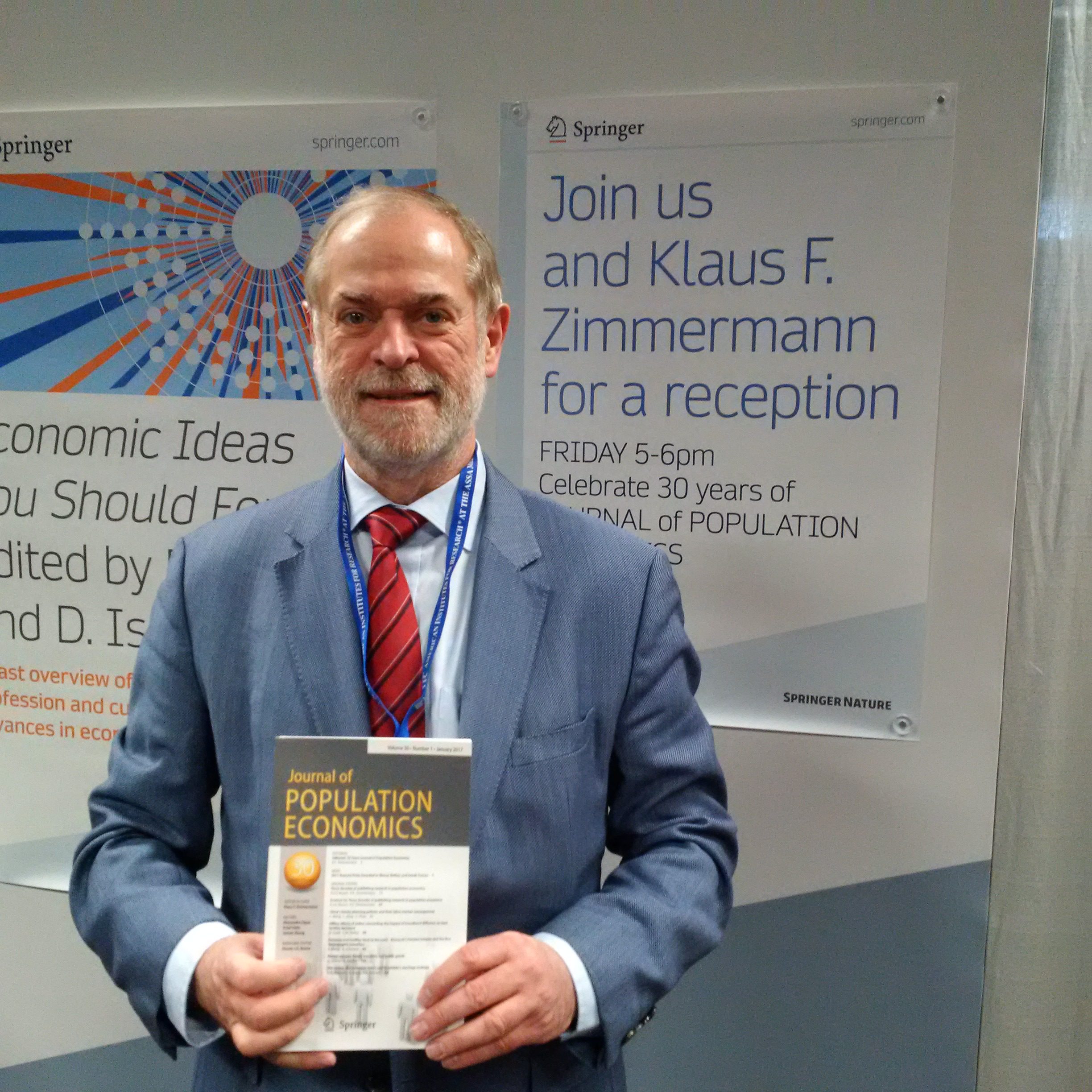
Time to party: Publisher Nicholas Philipson of Springer New York was introducing Zimmermann and expressed his gratitude for the long-term successful, cooperative and reliable partnership. Zimmermann thanked Springer for the ongoing trust and support over the decades, which was the basis for the ongoing success story. He also thanked his co-editors, the entire editorial team, thousands of referees and authors who trusted in the future of the journal.
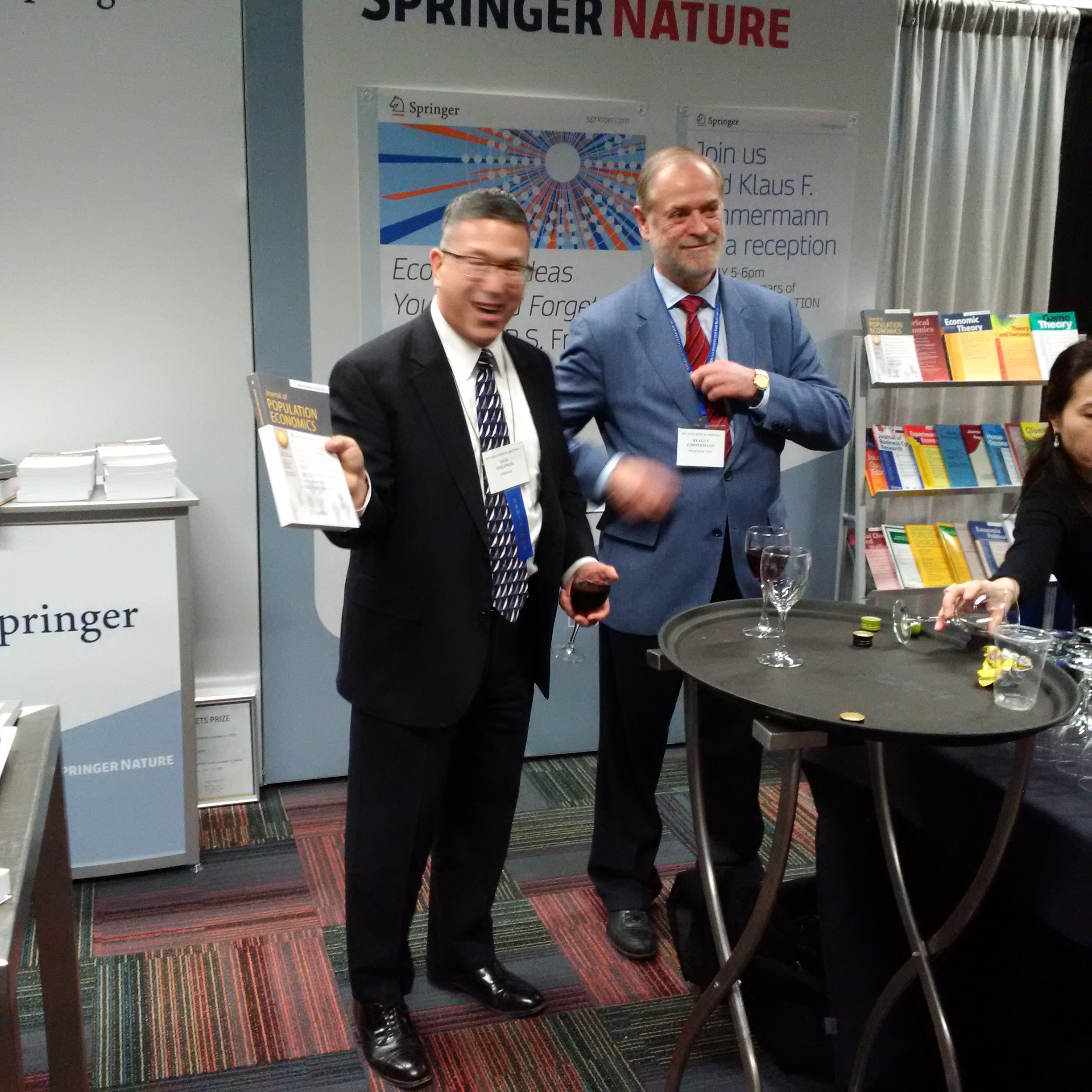
It is done; something to be proud of…..
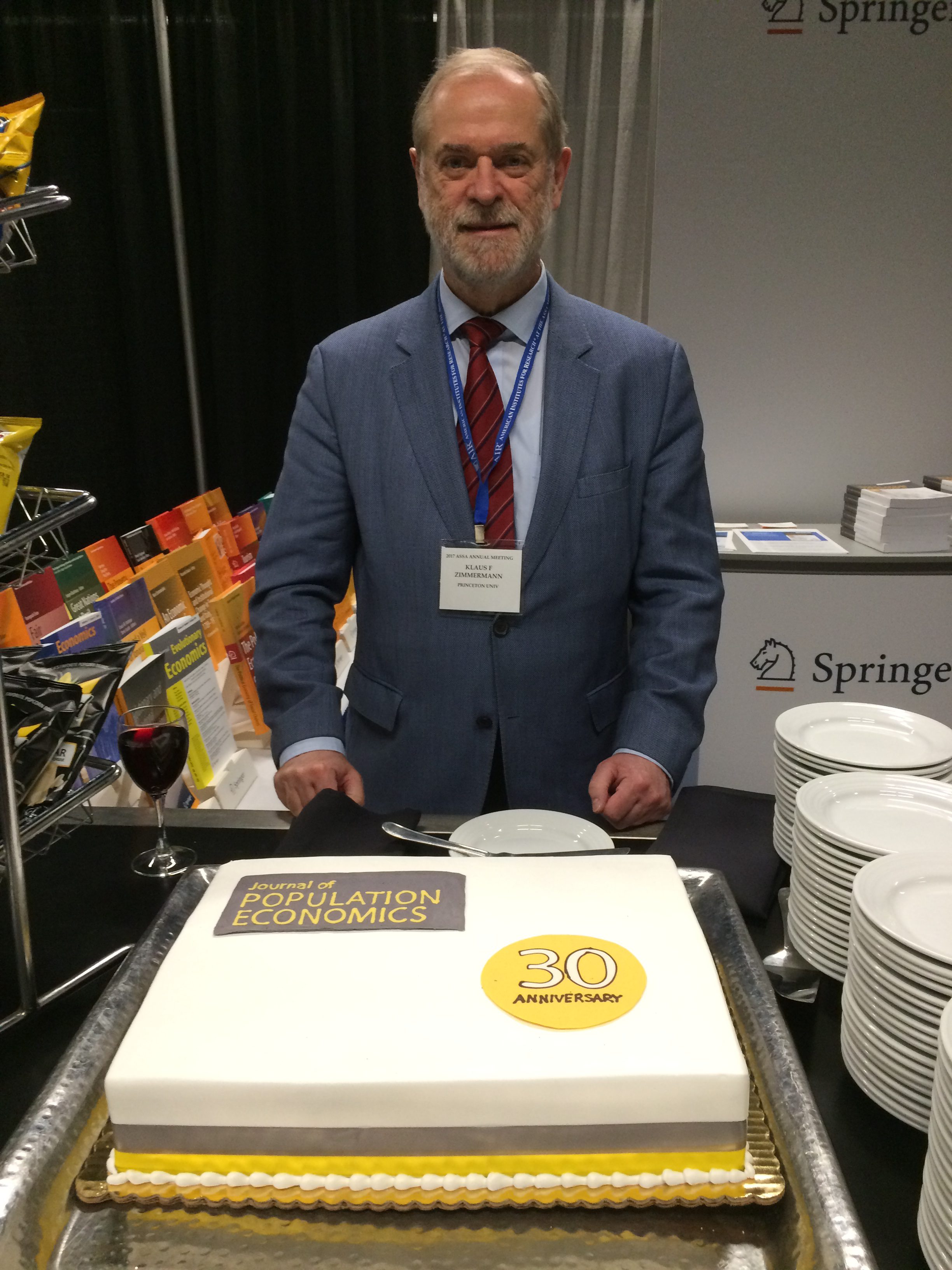
To share the success with so many of the present long-time supporters of the event ….
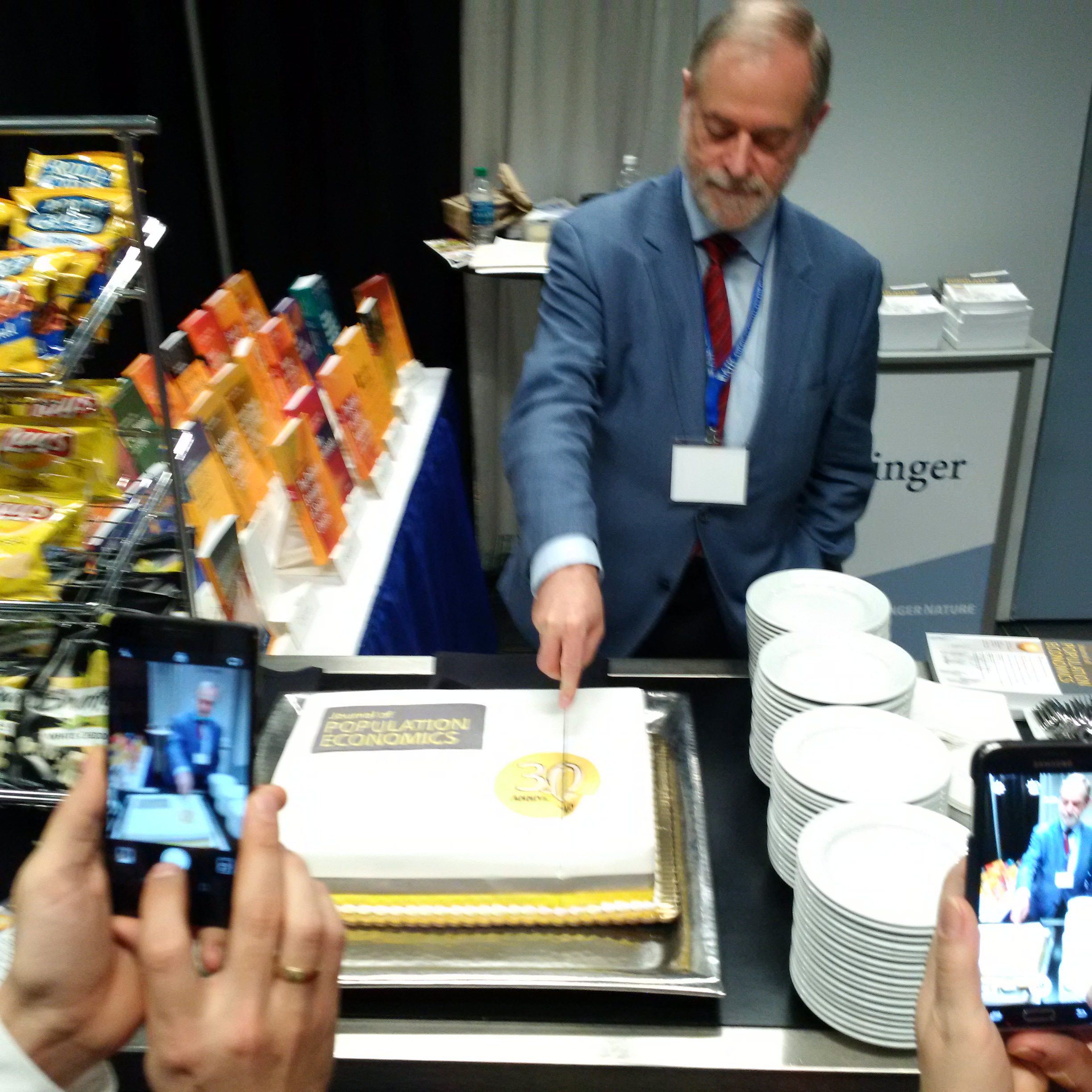
Number of submissions and articles over the last 20 years. Source: Brown/Zimmermann (2017) In 2016, the Journal has received many more than 500 submissions!

Acceptance Rates Source: Brown/Zimmermann (2017)

SSCI Impact Factor Source: Brown/Zimmermann (2017)

For further details on the performance of the journal see (open access):
The article “Three decades of publishing research in population economics” highlights and reviews selected developments in the very successful 30 years of publishing high-quality research in population economics.
ENDS;

